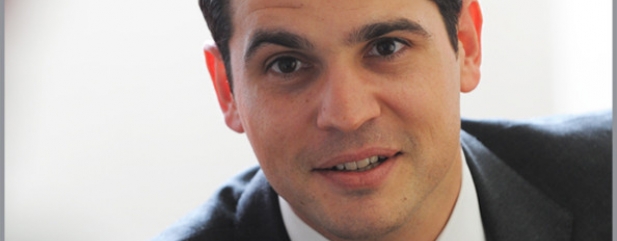Archived article
Please note that tax, investment, pension and ISA rules can change and the information and any views contained in this article may now be inaccurate.
Bold recovery calls can bring big rewards

Whatever the market backdrop there will be stocks which or recovery situations or management change stories that could potentially result in big returns. Recovery investing can be a risky endeavour, which is why it is so helpful to harness the expertise of fund managers.
Among the best-known recovery funds are the capital growth-focused M&G Recovery (GB0031289217), whose manager Tom Dobell invests at least 80% of the portfolio in out-of-favour firms where he believes a good management team is making concerted efforts to turn the business around.
Schroder Recovery (GB0007893760) invests in UK companies that have suffered severe share price or profitability setbacks, while contrarian Alex Wright’s Fidelity Special Situations (GB0003875100) scouts for unloved, undervalued firms where the market is overlooking the recovery potential.
Recovery fund favourites
Alastair Mundy, the manager of Investec UK Special Situations (GB0031075665), puts money to work with the market’s unloved stocks, while over in the closed-ended funds sector, we think The Scottish Investment Trust’s (SCIN) 9.21% discount to net asset value implies a buying opportunity.
Investing globally with the aim of achieving capital appreciation and inflation-busting dividend growth, the self-managed trust’s four-strong management team led by Alasdair McKinnon uses behavioural finance techniques to exploit investors’ tendency to ‘follow the crowd’.

By focusing on stocks that are very unloved, those with operational improvements that have been overlooked, and more popular stocks that can continue to do better, the managers build in a margin of safety.
Contrarian McKinnon’s picks fall within three categories: ‘ugly ducklings’ such as Marks & Spencer (MKS), ‘change is afoot’ stocks including Treasury Wine Estates and ‘more to come’ ideas such as Japan’s Nintendo.
Savvy Savvides
Yet another way to gain exposure to recovery situations, as well as restructuring and ‘hidden growth’ stories, is through the acumen of JOHCM UK Dynamic Fund’s (GB00B4T7HR59) Alex Saviddes, a proven backer of positive corporate change.
Savvides (above) is an independent thinker whose ‘change’ based investment process has delivered outstanding, benchmark-beating returns. Launched in 2008 ‘in the teeth of the financial crisis’, it has since faced a series of turbulent events which have tested his mettle. ‘It has been very uncertain and volatile all the way through,’ says.Savvides.
His fund is up 100.9% on a five-year basis versus 69.7% for the IA UK All Companies sector according to Trustnet, ‘but we’ve always faced that as a fund, we don’t use it as an excuse not to invest capital. We use that as a reason to find interesting ideas that might be undervalued.’

Positive corporate change
JOHCM UK Dynamic’s senior fund manager believes the market’s misunderstanding of corporate change, typically new management teams with new strategies, regularly throws up opportunities for patient, disciplined and unemotional investors.
The process Savvides has developed aims to profit from understanding change and investing where there is the highest probability of success but with the highest cash-based valuation support.
Companies that tend to alert his antennae are typically ones ‘where revenues and performance has tailed off because management has been poor in their capital allocation decisions or run the business poorly’.
Savvides sees opportunities where the market perception is of what the company used to be under old management, ‘but the reality is a new management team has gone in, the company has accepted it needs to change at board level and management is thinking about how it can improve return on capital and cash generation.
‘There is this gap that emerges between what’s going to happen and what has happened, and that’s where we exist as a fund.’
Dividend discipline
‘Every company we invest in has to have had a history of dividends, has to be paying one today or we give them one year grace period where they might be using the cash to pay down debt, but they should routinely be paying dividends out because the company is cash generative. So we take a bit more of our total return from income than (the aforementioned funds) do and we have interesting yield characteristics that our clients like,’ Savvides adds.
Portfolio positions include buyouts-to-infrastructure focused 3i (III), purchased during the financial crisis and which has been ‘an absolutely brilliant investment for us’, Marks & Spencer and Frankie & Benny’s operator Restaurant Group (RTN).
The fund is also profiting from the renaissance underway at electronic components-to-engineering consumables play Electrocomponents (ECM) which following a long period of malaise is now outperforming under new CEO Lindsley Ruth, ‘a fantastic capital allocator who has got the business moving materially.’
Always making up his own mind on a stock, Savvides’ backing of Morrisons (MRW) when the supermarket was struggling in 2014 and ‘analysts were all routinely negative sellers of the company’ has proved a sound call, with CEO David Potts driving a turnaround of the grocer. Savvides explains:
‘The old management weren’t accepting of the competition and how things were changing, cue one major profit warning where they had to invest a lot into price. But what we liked about Morrisons was its asset backing.
‘It had a pension surplus not a deficit, didn’t have major lease assets and had a competitive advantage in that it manufactures its own food. There was a wholesale, capital-light growth opportunity that the market wasn’t thinking about.’
Important information:
These articles are provided by Shares magazine which is published by AJ Bell Media, a part of AJ Bell. Shares is not written by AJ Bell.
Shares is provided for your general information and use and is not a personal recommendation to invest. It is not intended to be relied upon by you in making or not making any investment decisions. The investments referred to in these articles will not be suitable for all investors. If in doubt please seek appropriate independent financial advice.
Investors acting on the information in these articles do so at their own risk and AJ Bell Media and its staff do not accept liability for losses suffered by investors as a result of their investment decisions.

 magazine
magazine









